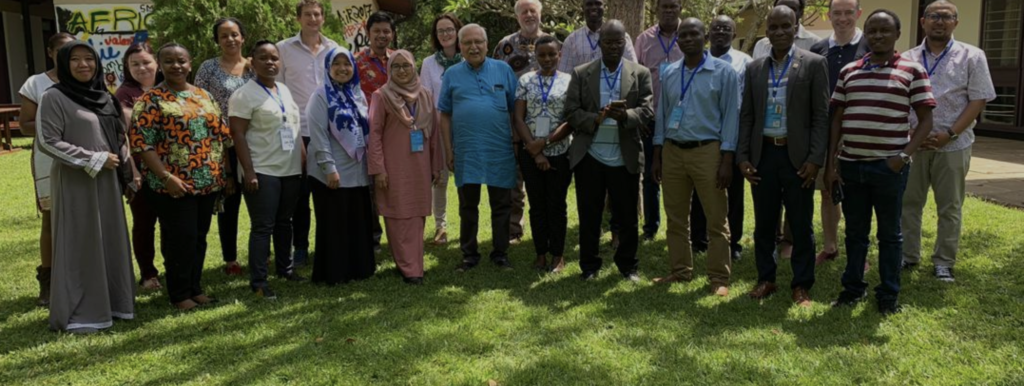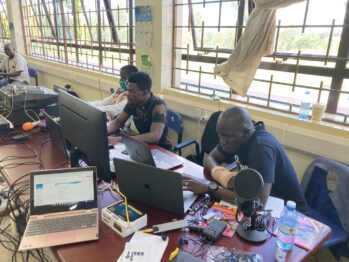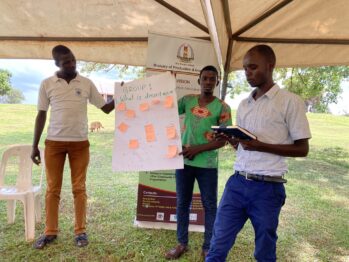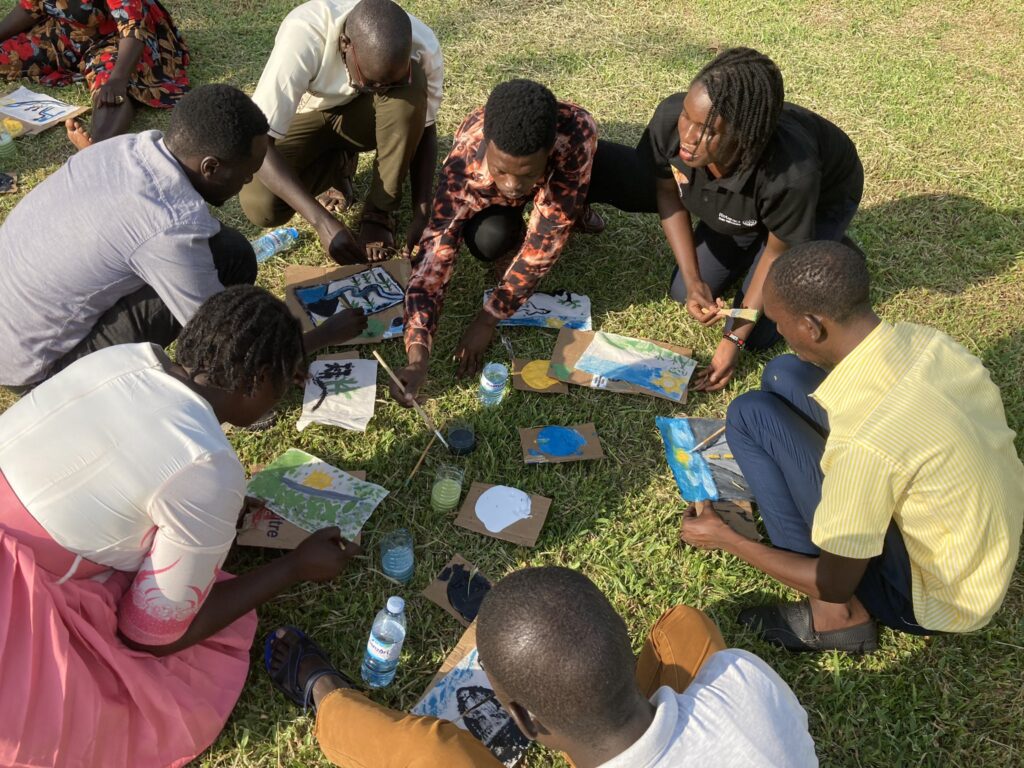Trees are the lungs of the planet, and it’s getting harder and harder to breathe. Deforestation continues unabated in many parts of the world. Among the worst affected is Uganda, where tree cover has fallen below the minimum requirement of 10%. The country’s National Forest Authority has announced an ambitious plan to reverse the loss by 2040, restoring at least 136,000 hectares annually. For it to truly succeed in mitigating the impact of deforestation, a bottom-up approach is crucial. And it requires the participation of local communities. The community-based participatory research in Amuru District of Northern Uganda conducted by a local CSO and Gulu University Centre for Community Based Participatory Research and Lifelong Learning (which is part of the K4C Consortium of the UNESCO Chair in Community Based Research and Social Responsibility in Higher Education), shows us a pathway to prevent deforestation and promote sustainable practices based on indigenous knowledge and community leadership. By building partnerships with the local community, the Gulu University Centre co-created local solutions to achieve SDG 11 (Sustainable cities and communities), SDG 13 (climate action), and SDG 15 (life on land).  The participatory research study assessed the impact of deforestation in the district. The process involved field data collection, stakeholder and situational analysis, data dissemination to local government authorities, and direct community action. The efforts began with convening four Community Reflection Action groups with the purpose of mobilising community knowledge through discussion on deforestation in the district. Each Community Reflection Action group consisted of 80 people, both men and women. Community mapping, photo/video inquiry, storytelling and discussions were used to co-collect and co-analyse the data with a focus on enabling action to improve the community.
The participatory research study assessed the impact of deforestation in the district. The process involved field data collection, stakeholder and situational analysis, data dissemination to local government authorities, and direct community action. The efforts began with convening four Community Reflection Action groups with the purpose of mobilising community knowledge through discussion on deforestation in the district. Each Community Reflection Action group consisted of 80 people, both men and women. Community mapping, photo/video inquiry, storytelling and discussions were used to co-collect and co-analyse the data with a focus on enabling action to improve the community.

The community mapping process was done by groups drawing maps in the dirt to identify the hotspots for tree cutting within their villages. The processes required power sharing and a lot of adjustments to the maps until consensus was established. Thereafter, video and photography were used to document the deforestation camps, the process of charcoal being burnt, and transportation trucks being overloaded. Collectively, the numbers of charcoal-loaded trucks and trees being taken away each day from the district was recorded. The community co-researchers listened to the stories of elders who explained the extent of degradation and shared the cultural, medicinal, and spiritual value of some of the trees being lost. Formal spaces were provided for each group to discuss the problems. Throughout the process, the main effects of deforestation and everyday problems associated with tree cutting emerged. This included drying of natural well and rivers; women having to walk longer to fetch firewood; exploitation of community members by charcoal traders; floods and landslides; as well as loss of soil fertility. The participants identified key stakeholders who they would need to influence, and a plan of action got developed.
Elders in the groups shared that some people in the community believe that, when they die, their spirits go into the trees, and thus if trees were cut without the appropriate rituals, the ancestors were being murdered. In addition, Shea trees, which are among the most important species for medicine and human healthy wellbeing, were being targeted by tree cutters due to the high quality of their charcoal. Traditionally, community by-laws forbid the cutting of Shea trees. This is because the Shea nut tree is crucial for the sustenance of natural vegetation, medicine, livelihoods and culture. Unfortunately, the charcoal burners had a strong preference for Shea trees due to the desirable quality of charcoal that the wood produces. The participants also expressed their observation and concern that the majority of tree cutting in the district was currently being done by power saws, which in their opinion was wasteful compared with hand cutting the trees. 
The extensive cutting of trees had resulted in adverse social, economic, and ecological consequences. Reduced access to resources that were necessary for survival was seen as the cause of increasing conflict and tension in the community. Often it was the local communities who were blamed for cutting down the trees; however, this research has demonstrated that in fact the communities were aware of the damage inflicted by deforestation and were generally opposed to it. Once the study findings were compiled, they were shared and presented to local authorities by community members along with the researchers from the K4C Centre. The impact of this study has been extremely powerful. Local district councillors banned commercial tree cutting, effective from January 2020 and community tree nurseries have been developed in the region. When the implementation of the ban was not carried out effectively, the community mobilised in direct action on the tree-cutting camps they had mapped out, destroying them and forcing out the workers. There remains much to be done to curb deforestation in Northern Uganda but the local communities in Amuru District have shown that, with some support from a socially responsible university in their area, local knowledge can be channelled into action – an effective tool for participatory solutions for a sustainable planet. 
PRIA’s MobiliseHER team traveled to Bangalore during the week of June, 10 – 14, 2024. The aim of the visit was to gain relevant insights into the civil society ecosystem in Bangalore and meet different organisations to understand the city through a lens of gender and inclusive mobility.
Working at PRIA, often leads us to various cities across the country. Each trip is an opportunity to witness firsthand the challenges and triumphs of different communities.
Mr. Yedukrishnan V has recently joined PRIA after gaining valuable experience in the development sector. Drawing from his journey in the social sector and personal encounters in Kerala, he emphasises the importance of participatory governance and research in empowering marginalised communities.'